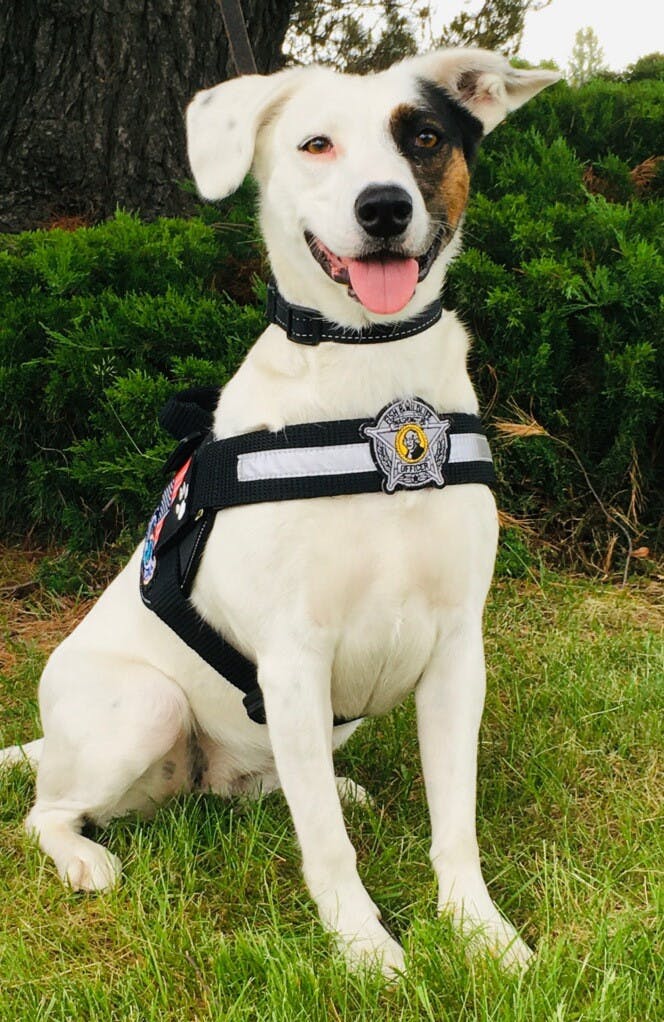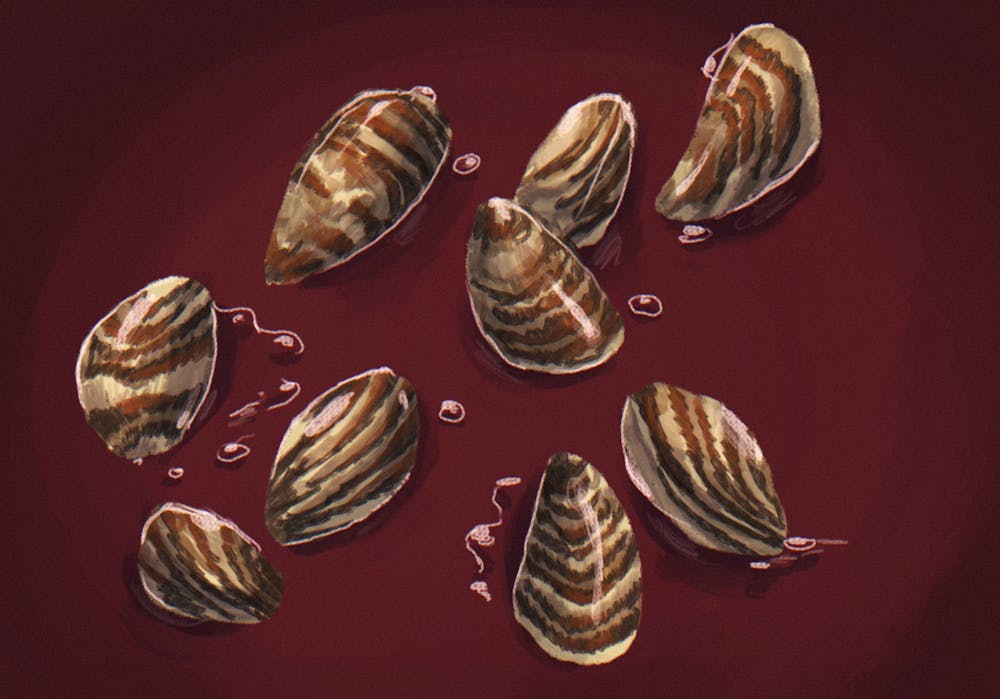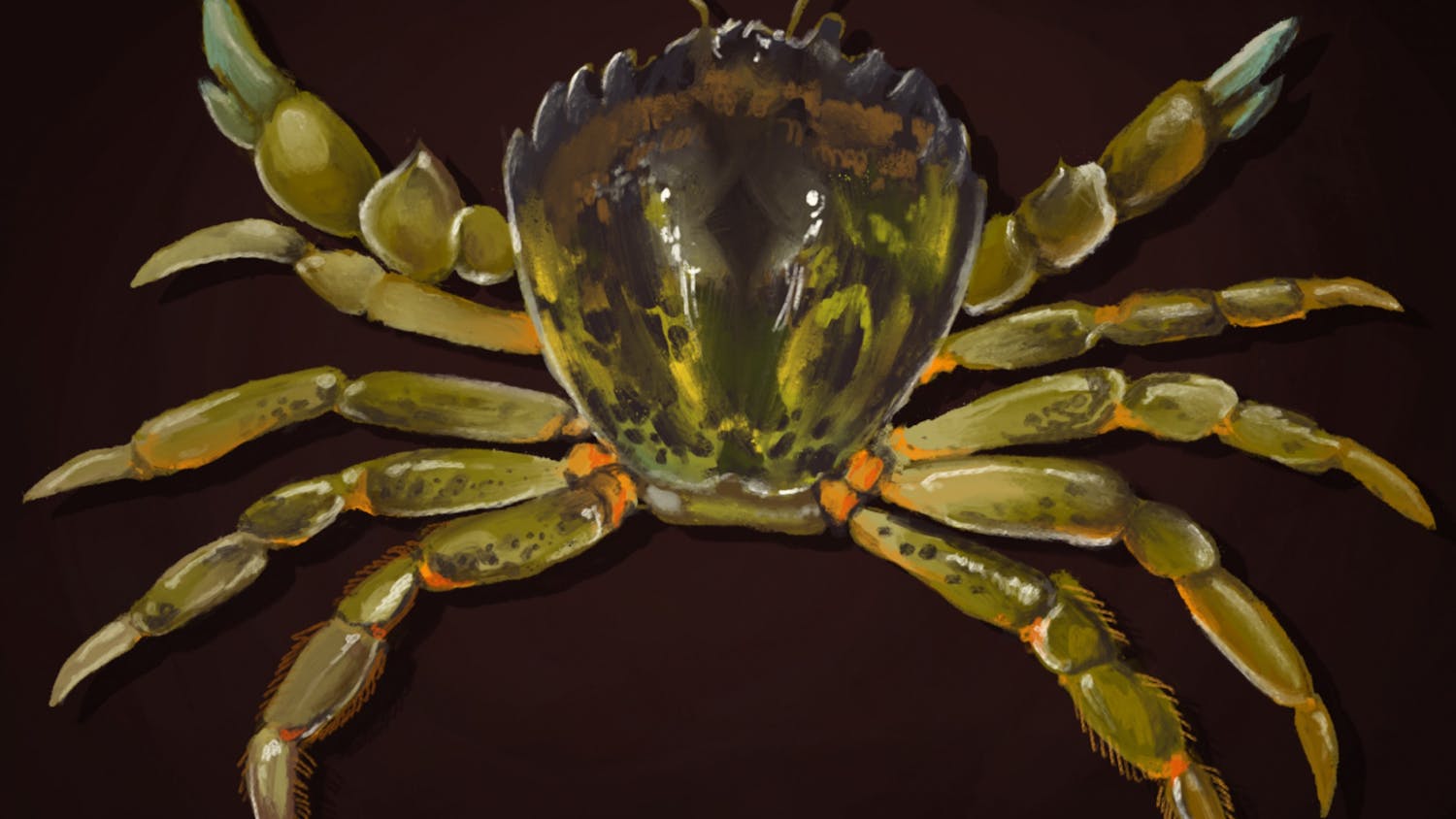Zebra and quagga mussels, native to the Caspian Sea, are considered a high-priority invasive species in Washington state and can cause significant ecological damage.
Jesse Schultz, a manager at the Washington Department of Fish and Wildlife Aquatic Invasive Species Unit, said zebra and quagga mussels are grouped together due to being in the same family.
“We’re lucky,” Schultz said. “We’ve never had any known in-water detections of zebra or quaggas in Washington ever. There’s been a lot of mussels that we’ve detected on watercraft, dam equipment, irrigation or whatever type of equipment.”
The mussels are a potential issue due to the damage they can cause by clogging pipes and mechanical systems like industrial plants and dams.
“We are conducting in-field exercises of what we could do and get prepared, and we’re acting like we’re going to find them,” Shultz said. “It’s what we can do, what’s the worst-case scenario, are we prepared for containment?”

Puddles arrived in Washington at 14 months old and is a successful grad from Mussel Dogs. She is a rescued shelter dog and helps ensure zebra and quagga mussels don’t get into fresh waterways. // Courtesy of Pamela Taylor
The Washington Department of Fish and Wildlife is taking steps to combat the issue of the mussels by implementing Mussel Dogs, a company that trains dogs to sniff out quagga and zebra mussels on boats to keep them out of waterways. The company services are used all around the country, from Texas to California, to eastern Washington.
Debi DeShon, the owner of Mussel Dogs, said there are no specific breeds of dogs they use.
“It’s training any kind of search dog,” DeShon said. “The way we do it is we use a toy reward. We find a dog that’s very motivated by a toy, and then we associate the odor [of the mussels] with the toy.”
The fish and wildlife department has their own Mussel Dog in a mixed breed named Puddles. Puddles is used statewide by the Aquatic Invasive Species team, and she uses her nose to detect quagga and zebra mussels.
Sergeant Pamela Taylor of the Washington Department of Fish and Wildlife Enforcement Division said Puddles works at inspection stations along shorelines and boat ramps.
“They are an invaluable tool,” Taylor said. “The Washington Department of Fish and Wildlife will have a second dog this spring that will primarily be working at the Spokane Aquatic Invasive Species Inspection Station. This station intercepts the most mussel-infected watercraft.”
Zebra and quagga mussels first appeared in the U.S. from the Great Lakes in the mid-1980s in ships ballast water and are only found in freshwater. The mussels are much smaller in size than native Washington mussels, making them easier to identify. Native mussels range from 3 to 5 inches in length, while quagga mussels range from .8 inches wide and over 2 inches in length. Zebra mussels are smaller than quagga and range from ⅛ to 2 inches in length.
The public can help the Washington Department of Fish and Wildlife stop the spread of quagga and zebra mussels by pulling debris off their boats or trailer equipment and stopping at inspection stations throughout the western state.
Click here to find more information about quagga and zebra mussels or report a sighting.

Emily Paulson (she/her) is a senior reporter for The Front this quarter. She is a sophomore currently pursuing a double major in journalism specifically news/ed track and in accounting. Emily focuses her reporting on the Bellingham waterfront and other city news stories. Outside of journalism, Emily plays on the Western softball team, enjoys watching sports, spending time with friends and working on her podcast.
Her instagram is @empaulson22






